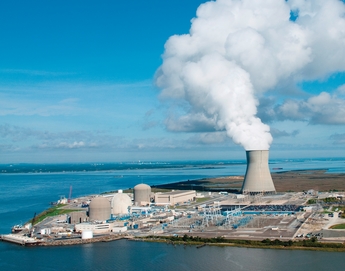 New Jersey's Governor Phil Murphy in May signed legislation to establish a Zero Emissions Certificate (ZEC) programme which will recognise and compensate nuclear plants for their carbon-free attributes, enabling them continue operating.
New Jersey's Governor Phil Murphy in May signed legislation to establish a Zero Emissions Certificate (ZEC) programme which will recognise and compensate nuclear plants for their carbon-free attributes, enabling them continue operating.
The bill, which was passed in April by the state's Senate and Assembly, was one of several intended to advance the US state's clean energy economy. It directs the state's Board of Public Utilities to issue certificates representing the fuel diversity, air quality, and environmental attributes of electricity generated by eligible nuclear plants selected to take part in the programme. The plants must demonstrate, among other things, that they make a significant contribution to the state's air quality and are at risk of closure within three years.
Four nuclear reactors together generate 38.5% of the New Jersey's electricity. These include the single-unit Hope Creek station, two units at Salem, plus and single-unit Oyster Creek plant. The Public Service Enterprise Group, which operates Hope Creek and Salem, has previously said that without support the plants would be unable to cover their costs within two years and risked closure. Oyster Creek, which is due to close in October, will not be eligible for the ZEC programme.
Exelon welcomed the development, noting that it would "help to preserve 90% of New Jersey's carbon-free power, protect 5800 jobs and save residents and businesses $400m on their electric bills”. New Jersey is the fourth US state to pass such legislation. New York and Illinois, which have both launched ZEC programmes, and Connecticut has passed legislation enabling the Millstone nuclear plant to enter into a competitive procurement process alongside other zero-carbon energy sources.
Photo: The Salem and Hope Creek nuclear plants in New Jersey


